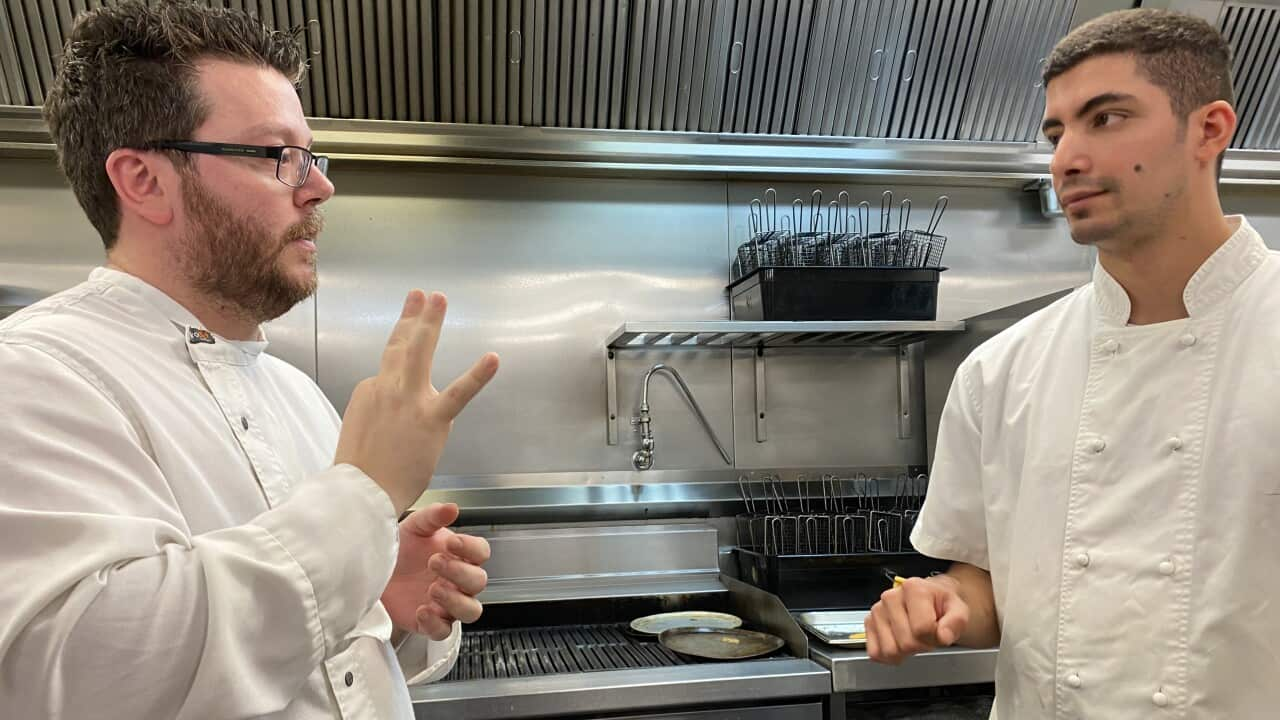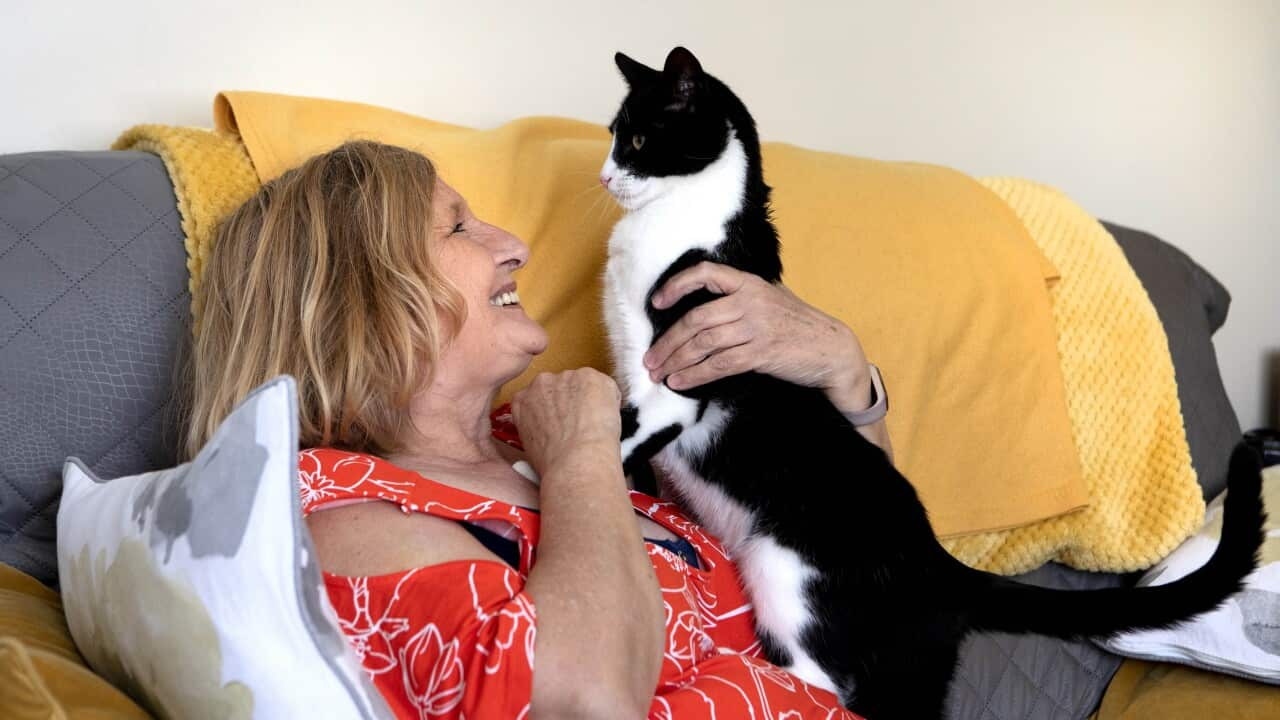Key Points
- A deaf citizen who participated in pioneering research in Australia on Deaf jurors says it shows what can be done.
- Legal rules in Australia are blocking Deaf and blind Australians from being jurors.
- The ACT is the only Australian state and territory that has passed laws to lift barriers.
Alex Jones has always wanted to discharge his civic duty and serve as a juror in a criminal trial.
"I feel there is an injustice there," he said, communicating in Australian Sign Language, known as Auslan.
"It's a human right to be able to participate in jury service."
As a deaf person, Jones is excluded from doing so under the state laws in NSW.
The legal arrangement is replicated in all Australian jurisdictions, bar the ACT, which passed laws in 2018 to allow deaf jurors access to Auslan interpreters.
That legislative change allows deaf citizens access to an Auslan interpreter to allow them to serve as a juror, overcoming legal barriers that were embedded in the laws on juries from the 1840s.
What is the state of play with the Australian law on deaf jurors?
Auslan interpreters are allowed to support Deaf citizens who are defendants or witnesses, but barriers remain in place for that arrangement to happen for deaf citizens who wish to serve on juries.
A 2016 , brought by Queensland woman Gaye Lyons, upheld prohibitions in the current legal framework that view the presence of an interpreter in the juror room as a violation of having only 12 people on a jury, with no additional persons present to influence deliberations by jury members. This is known as the "13th person rule".
Six months before that decision was handed down, the same issue was examined by the United Nations Committee on the Rights of Persons with Disability (CRPD), considering the case brought by NSW residents Gemma Beasley and Michael Lockrey.
The committee ruled in favour of the residents, finding that Australia had breached its obligations as a signatory of the Convention on the Rights of Persons with Disabilities.
But as the decision was not legally binding under domestic law, the NSW government did not adopt the recommendations.
What has research found about the ability of deaf citizens to serve as jurors?
In July 2014, legal academics conducted a in Parramatta to "investigate how the presence of a deaf juror impacts on the administration of justice from the perspective of the advocates, the bench, the accused and witnesses, and all stakeholders".
Practising lawyers were used to try a real case that had occurred in the NSW District Court on an offence of possession and supply of illegal drugs. Over one-and-a-half days, the 12 jurors heard the evidence presented before the court and then spent two hours coming to a verdict.
Jones was the Deaf juror in the mock trial. He says it was an affirming experience.
"It went really well," he told SBS News.
"The conversation was quite positive. The interpreter was in the room and obviously navigating cultural bridging - the hearing culture and deaf culture. It was a really positive experience."

A mock trial in Sydney in 2014 examined the capacity of deaf people who use sign language to serve as jurors. Source: Supplied
The researchers added that the competence of the interpreters used would be key to quality outcomes.
"We stress that only qualified interpreters should be engaged to interpret for jurors," the .
One of the co-authors, law professor David Spencer at the Australian Catholic University, said Jones' contribution, in fact, resulted in an inconsistency in the evidence being picked up in the jury room.
"There was one particular element of the evidence where there was an inconsistency in the evidence where the Deaf juror was the only person who picked it up and pointed it out to the rest of the members of the jury," he told SBS News.
Victoria is considering recommendations to pass laws to allow Deaf jurors
In May, the Victorian Law Reform Commission submitted its recommendations to change the state's Juries Act in a report submitted to parliament and the state's attorney-general.
Emma Cashen, from the Victorian Law Reform Commission, said the proposal contains key safeguards.
"The Auslan interpreter or the supporter should provide an oath to the court not to participate in those jury deliberations, to keep things confidential and to interpret truthfully," Cashen said.
The trial judge will retain discretion to determine when reasonable adjustments may not be enough to accommodate Deaf or blind jurors in all cases, for example, those that turn on voice or face recognition.
The Victorian government says it's reviewing the report's recommendations.
Like the ACT, Victoria has a legislative framework in place to consider the principles contained in international human rights treaties.
In ACT, the law is enshrined in Human Rights Act 2004.
In Victoria, the approach is outlined in its Charter of Human Rights and Responsibilities Act 2006.
In its submission to the Victorian Law Reform Commission, the Castan Centre for Human Rights Law noted the "provisions of the Charter provide powerful support for the Commission to recommend that potential jurors with physical disabilities are supported through reasonable adjustments and accommodations so that they are capable of performing the duties of jury service".
The commission said in its report that the state's jury composition was limited to male property owners for over a century.
That slowly changed over the years to include Aboriginal Victorians (after inclusion on the electoral roll in 1983) and female Victorians (since 1977 after several parliamentary debates).
"This pattern was similar in every Australian jurisdiction," the report said.
Deaf juror hopes for change
Those who are deaf, hard of hearing, blind or have low vision have served on juries overseas, including in the United Kingdom and New Zealand. In the US, it has been happening for more than three decades.
Being born completely blind hasn't stopped Emeritus Professor Ron McCallum from a legal career, including as an adviser to the disability royal commission and a five-year member of the CRPD until 2014.

Emeritus Professor Ron McCallum says there are special skill sets that blind people bring that can be an asset in the jury room. Source: SBS News
"The jury should be a microcosm of society; should represent sex, race, disability, immigration, Indigenous Australians," he said.
"We all are citizens and have a right to serve on a jury, and if I were charged with a crime, I would not want the jury to be only of old white men like myself."
Jones hopes the barriers can be lifted so his dream to serve on a jury can become a reality.
"This experience (of the mock trial) showed me and showed everyone that really you can do it."












